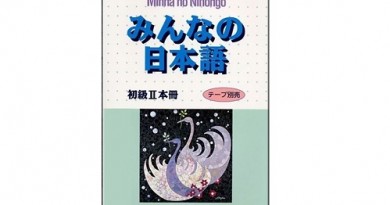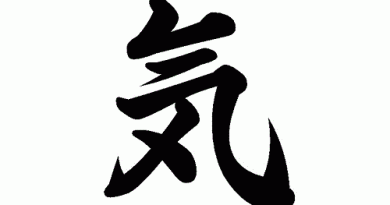Learn minna no nihongo lesson 44
Contents
- 1 6. Mondai
- 1.1 Exercise 1: Listen and answer the questions
- 1.2 Exercise 2: Listen and choose true or false
- 1.3 Exercise 3: Fill in the blank with information in the picture
- 1.4 Exercise 4: Fill in the blank
- 1.5 Exercise 5: Complete the sentence with the given words
- 1.6 Exercise 6: Complete the sentence with the given words
- 1.7 Exercise 7: Complete the sentence with the given words
- 1.8 Exercise 8: Read the paragraph and answer the questions
6. Mondai
Exercise 1: Listen and answer the questions
Question :
1. お酒を 飲みすぎて、気分が 悪く なった ことが ありますか。
O sake o nomi sugite, kibun ga waruku natta koto ga arimasuka.
Have you ever felt sick after drinking too much alcohol?
2. あなたの 辞書は 使いやすいですか。
Anata no jisho wa tsukai yasuidesuka.
Is your dictionary easy to use?
3. あなたは 疲れやすいですか。
Anata wa tsukare yasuidesuka.
Do you get tired easily?
4. あなたの 国では 大学に 簡単に 入学できますか。
Anata no kunide wa daigaku ni kantan ni nyūgaku dekimasu ka.
Is it easy to enter university in your country?
Answer :
1. はい、会社の 忘年会で 飲みすぎました。
Hai, kaisha no bounenkai de nomi sugimashita.
Yes, I drank too much at the company’s year-end party.
2. はい、とても 使いやすいです。
Hai, totemo tsukai yasuidesu.
Yeah, it’s very easy to use.
3. いいえ、いつも 元気です。
Iie, itsumo genki desu.
No, I’m always healthy.
4. いいえ。試験が 難しいですから。
Iie, shiken ga muzukashii desukara.
No. Because the exam is difficult.
Exercise 2: Listen and choose true or false
1.
女:おはよう ございます。
Good morning.
男:おはよう ございます。どうしたんですか。声が 変ですよ。
Good morning. What happened? Your voice is strange.
女:きのう カラオケで 歌いすぎたんです。
Because I sang too much at karaoke yesterday.
★ 女の 人は カラオケで 歌を たくさん 歌いました。
★ The woman sang a lot of songs at karaoke.
Answer:(〇)
2.
男:新しい パソコンは どうですか。
How is the new computer?
女:まえの より ずっと 使いやすいです。
It’s much easier to use than the previous one.
男:そうですか。
Is that so.
女:操作も 簡単だし、いろいろな ことが できるんです。
It’s easy to operate and you can do various things.
★ 新しい パソコンは 簡単で、使いやすいです。
★ The new computer is simple and easy to use.
Answer:(〇)
3.
女:最近 かぜを ひきやすいんですが、どうしたら いいでしょうか。
I’m catch cold easily recently, what should I do?
男:きちんと 食事を していますか。
Are you eating regularly?
女:いいえ、忙しくて・・・。
No, because I’m busy…
男:それは いけませんね。きちんと 食べて、よく 寝た ほうが いいですよ。
You can’t do that. You should eat regularly and sleep well.
★ 女の 人は よく 食べて、よく 寝るので、あまり かぜを ひきません。
★ The woman eats regularly and sleep well, so she doesn’t catch cold very often.
Answer(✖)
4.
男:ごめんください。
Excuse me.
女:はい。
Yeah.
男:隣の 田中ですが、テレビの 音を もう 少し 小さく して もらえませんか。
I’m Tanaka in the next room, could you lower the sound on your TV a little bit?
女:どうも すみません。気が つかなくて。
I’m very sorry. I didn’t notice that.
男:お願いします。
Please.
★ テレビの 音は 大きいです。
★ The sound of TV is loud.
Answer:(〇)
5.
男:ごはん、できたよ。
The meal is ready to eat.
女:いただきます。ちょっと、味が 薄いわね。
Thank you. It is tasteless.
男:そう?
Really?
女:それに、肉は もっと 薄く 切らないと。
And the meat has to be cut thinner.
男:そうか。今度は もっと うまく 作るぞ。
I see. I’ll make it better next time.
★ 男の 人は 肉を 薄く 切りました。
★ The man cut meat thinly.
Answer(✖)
Exercise 3: Fill in the blank with information in the picture

Example 1: お酒を(飲みすぎました)。
I drank too much alcohol.
Example 2: この 説明書は(複雑すぎます)。
The instructions are too complicated.
1. 塩を( )。
2. カラオケで( )。
3. ごはんの 量が( )。
4. この 服は( )。
Exercise 4: Fill in the blank
Example: テレビを(見すぎて)、目が 疲れました。
I watched TV too much, so my eyes got tired.
1. ごはんを( )、おなかが 痛いです。
2. お土産を( )、一人で 持てません。
3. 部屋が( )、ベッドが 置けません。
4. この アパートは 家賃が( )、借りられません。
Exercise 5: Complete the sentence with the given words
Example : この 薬は 甘くて、(飲み)やすいです。
This medicine is sweet, so it is easy to drink.
The given words: 破れます、持ちます、割れます、飲みます、歩きます
1. この 靴は 軽くて、( )やすいです。
2. この かばんは 大きすぎて、( )にくいです。
3. この 袋は 丈夫で、( )にくいです。
4. 薄い コップは( )やすいです。
Exercise 6: Complete the sentence with the given words
Example : もう 11時ですから、(静かに)して ください。
It’s already 11 o’clock, so please be quiet.
The given words: 小さい、来週、短い、静か、きれい
1. この ズボンは 長すぎますから、少し( )して ください。
2. テレビの 音が 大きいですから、( )して ください。
3. テーブルの 上が 汚れて いますから、( )して ください。
4. 今週は 都合が 悪いですから、( )して ください。
Exercise 7: Complete the sentence with the given words
Example : 夕方は 道が 込みますから、(早く)出発しましょう。
The road is crowded in the evening, so let’s leave soon.
The given words: 簡単、早い、細かい、優しい、熱心
1. 試験の まえなので、学生は みんな( )勉強して います。
2. 野菜は( )切って、ごはんと 混ぜます。
3. 警官は 子どもに( )名前を 聞きました。
4. 時間が ありませんから、予定に ついて( )説明します。
Exercise 8: Read the paragraph and answer the questions
結婚式の スピーチ
結婚式の スピーチを 頼まれた ことが ありますか。スピーチは 長すぎると、みんなに 嫌がられます。また 短すぎると、お祝いの 気持ちが うまく 伝えられません。難しいですね。練習して おいても、大勢の 人の 前に 立つと、なかなか 上手に できません。話の 順序を まちがえたり、忘れたり します。話の 大切な 所を メモして おくと、安心です。できるだけ 易しい ことばや 表現を 使うように します。難しい ことばは 覚えにくいし、まちがえやすいからです。
それから、使っては いけない ことばが あります。例えば「別れる」とか、「切れる」とかです。これらは 縁起が 悪いので、使いません。気を つけましょう。
Question :
1. 短すぎる スピーチは どうして よくないのですか。
2. スピーチを 忘れないように、何を して おくと いいですか。
3. どうして 易しい ことばや 表現を 使うのですか。
4. 使っては いけない ことばは 何ですか。
Translation :
Wedding speech
Have you ever been asked for a wedding speech? If the speech is too long, everyone will hate it. But if it is too short, the congratulations can’t be conveyed well. It’s difficult, right? Despite practicing before, you can’t speak well in front of many people. You might say the wrong order of the speech or forget the content of the speech. It is safe to write down important points of the speech. Try to use as many simple words and expressions as possible. Because difficult words are hard to remember and easy to make mistakes.
And there are some words that you should not use. For example, “to separate” or “to break”. Because these are bad luck, so we don’t use them. Be careful.
Answer :
1. 短すぎる スピーチは どうして よくないのですか。
Why is too short speech not good?
・・・お祝いの 気持ちが うまく 伝えられませんから。
… Because the congratulations can’t be conveyed well.
2. スピーチを 忘れないように、何を して おくと いいですか。
In order not to forget the speech, what should we do?
・・・話の 大切な 所を メモして おくと いいです。
… We should write down important points of the speech.
3. どうして 易しい ことばや 表現を 使うのですか。
Why do we use simple words and expressions?
・・・易しい ことばは 覚えやすいし、まちがえにくいからです。
… Because easy words are easy to remember and hard to make mistakes.
4. 使っては いけない ことばは 何ですか。
What are the words that we should not use?
・・・「別れる」とか、「切れる」とかです。
… Such as “to separate” or “to break”.
Above is : Learn minna no nihongo lesson 44. See other lessons in category: learn japanese with minna no nihongo or Japanese for beginers


